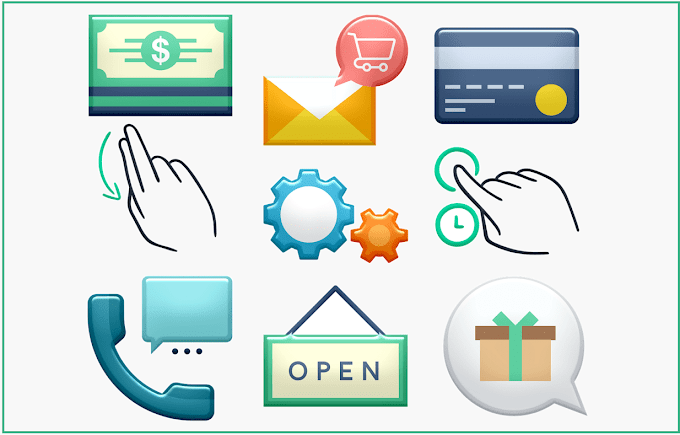
Every day when we check the news, we see updates about some form of cyberattack targeted against a business. Usually, these attacks hit small and medium businesses. Since the coronavirus epidemic started, cybercriminals have stepped up their game, hunting for businesses with medium or low levels of cybersecurity.
A survey conducted by Datto on over 1,400 businesses globally divulged that 20% of all small and medium businesses (SMBs) have experienced a ransomware attack. The survey also showed that 61% of SMBs contain viruses in their systems, and 54% contain malicious software. In October 2019, an SMB known as the Heritage Company was attacked by ransomware, and today still struggles to find its feet in the market.
Several SMB owners find cybersecurity too technical and give up on attempts to secure their systems. Having to install an antivirus, configure a VPN router, and handle all of the technical issues could confuse business managers and owners who aren’t tech-savvy.
If you’re an SMB owner or manager finding it hard to understand the intricacies of cybersecurity, here’s the best guide for you. You wouldn’t need to be a tech guru to understand the points being made, and you would not need to take time off your usual work activities. All you’d need to do is liaise with your team to implement these tips.
Tips for Refining SMB Cybersecurity:
1. Update your OS and Software
The first thing you need to do (which is also the simplest) is to update your software programs and your device’s operating system. Cybercriminals spend tons of hours to find new ways of breaching systems. It could be for financial remuneration or ego. Regardless of the motive, a successful cyberattack could mean the end of your business.
Software companies have teams working around the clock to counter the activities of these hijackers. When they’ve made progress, they release software updates to improve security. When you download these updates as soon as they’re launched, you’ve effectively made a huge leap in securing your system.
An instance of systems being hit with malicious software as a result of outdated software is the WannaCry incident. In 2017, companies like FedEx and National Health Service in the UK were attacked by WannaCry because they hadn’t installed Microsoft’s security update.
2. Install a VPN
Installing a VPN is the first step to immensely boosting your SMB’s digital network security. All forms of businesses need VPNs, including ones that hire freelancers or have employees traveling all over the world.
A VPN creates a tunnel to protect the data being exchanged by your employees and the web services they utilize. If your business uses cloud storage, a VPN would establish a secure connection between your device and the cloud storage, ensuring no one spies on your login details. Even if you’re working from home, your data receives a high level of encryption, protecting sensitive from the government, your internet service provider (ISP), and hackers.
With a VPN, anyone can access geo-restricted services from any location in the world. Firms that have employees shuttling countries frequently and firms that employ freelancers sometimes experience the geo-blocking issue. For instance, in China, services like G-Suite cannot be accessed. With a VPN, you can bypass this censorship.
VPNs also spoof IP addresses, masking a user’s identity when he/she is online. If your business relies on keeping client information protected, your best bet to prevent a hacker spying on your information is a VPN. Without a VPN, you’d be exposed to various persons and bodies such as shady corporations, hackers, or even the government.
You don’t need to break the bank to purchase a VPN. Most VPN services are cost-effective and offer a wide range of benefits.
3. Install Antivirus Software
A computer virus is a program that damages computer software. It is harmful to businesses because it can cause the removal of data. A virus is so dangerous, that one employee with a computer virus can corrupt your whole network.
Some of the most dangerous types of viruses are malware, ransomware, and spyware. Malware works by remotely accessing or controlling your computer. Ransomware is generally considered worse by individuals in the tech space. Agents controlling ransomware can seize data on your computer, forcing you to pay a ransom to have your data back.
Using an antivirus would ensure everything from your email attachments to downloaded files are scanned. Antivirus programs also frequently release updates, countering new viruses being released by hackers every day. An antivirus program can also detect and remove malware that is already infecting your computer system.
Wrapping it up
Small and medium businesses are increasingly being attacked by hackers every day. To prevent your business from being part of the alarming number of SMBs losing money, you need to boost your cybersecurity. You can do this by updating device software, utilizing a VPN, and installing antivirus software programs.




![Performance Marketing - What Is it & How It Works [+ 6 Tools You Can Use]](https://blogger.googleusercontent.com/img/b/R29vZ2xl/AVvXsEj0akcIPU36HHfqWoYrb2LCMNG8OvxPb9drUYKWJZvSXmfbJG0OrjN5jfzTFDmT-9MKcuZt-G-66PiLlIVjgX1DwCNzHeIMW0pjW7W3IB2rZYzx4ISbL2T6JC4M38eubqHxQ3e71l2_n7oxh2f2QdV3d1prJ6z9HQNsSyfjtO18diLxEZg-5wD-I6RINFY/w680/performance_marketing-min.png)





0 Comments